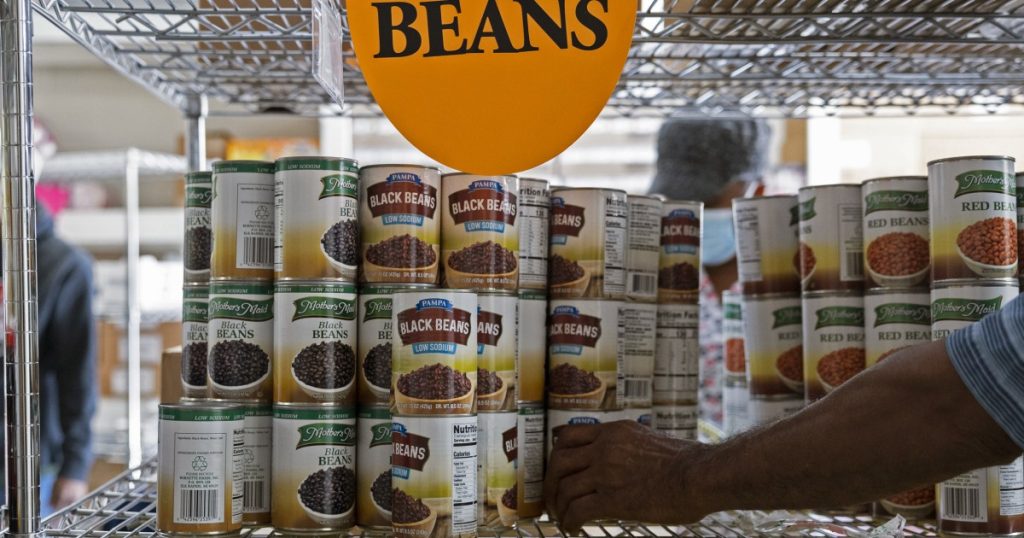Across Western Michigan, food banks are seeing record levels of need, with demand increasing by 18% over the past 12 months. Despite rising wages and low unemployment rates, many households are struggling to put food on the table due to escalating costs that have eaten into their savings and increased credit card debt. Food bank directors are reporting that the need for assistance is as high as it was at the peak of the pandemic, yet resources for families are limited.
States like Michigan, Pennsylvania, and Wisconsin, which are critical in the upcoming presidential election, have become the focus of campaign efforts by former President Donald Trump and Vice President Kamala Harris. Both candidates are seeking to address voters’ economic concerns by proposing tax breaks, incentives for low-income households, and plans to combat price gouging by food producers and grocery stores. Despite a decrease in the pace of price increases since the peak two years ago, costs for essentials like food remain high, leading to financial strain on many households.
In affluent Milwaukee suburbs like Waukesha County, Wisconsin, food pantry director Rochelle Gamauf is seeing an increase in new faces seeking assistance each week. The pantry, Friends With Food, has seen a drastic increase in the amount of food distributed from 420,000 pounds in 2022 to over a million pounds in 2023. Gamauf notes that people are not just struggling with the cost of food, but also increasing prices in other areas like electricity, rent, and insurance, causing financial strain for many families.
In central Pennsylvania, food bank director Joe Arthur reports serving as many as 275,000 individuals a month, with rising housing costs becoming a major pressure point on household budgets. In areas like Lancaster County and Dauphin County, rents have increased significantly, forcing many to spend more than 30% of their income on housing alone. Despite rising wages, housing costs have far outpaced these increases, leaving many families struggling to make ends meet.
In neighborhoods like Metcalfe Park in Milwaukee, community members like Melody McCurtis are witnessing a steady increase in demand for food assistance, especially among working families. The Jewish Community Pantry in the area has seen a 37% increase in the number of people seeking help over the past two years. Many of the new visitors are working families who are struggling to afford basic necessities, despite being employed. Rising housing costs are cited as a major obstacle for many families, with rents increasing beyond what many can afford.
Food banks in Michigan, like the ones Phil Knight oversees, are seeing an increase in the number of regular visitors who rely on their services as a form of income replacement. With federal assistance down from pandemic levels, food banks are struggling to keep up with demand. Many organizations have had to cut back on the amount of food given to each recipient and are being forced to turn away more people seeking help. Despite efforts to meet the growing need, many food banks are facing limitations in capacity and resources, leaving hundreds still in line without assistance.













